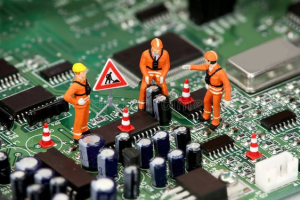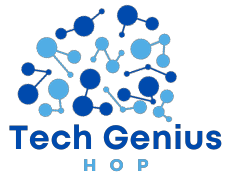How Will Quantum Computing Affect Artificial Intelligence Applications
Quantum computing has the potential to significantly impact artificial intelligence (AI) applications in several ways:
Speeding up AI Training: Quantum computers excel at solving complex optimization problems, which are central to many AI tasks, such as training deep neural networks. Quantum algorithms like the quantum support vector machine and quantum annealing can accelerate the training process, reducing the time it takes to develop and fine-tune AI models.
Improved Machine Learning Algorithms: Quantum computing can enable the development of more advanced machine learning algorithms. Quantum machine learning algorithms may be better suited to handle large datasets and complex relationships, leading to improved AI model performance.
In the ever-evolving landscape of technology, two of the most exciting and groundbreaking fields are how will quantum computing affect artificial intelligence applications. Both have made tremendous strides independently, but what happens when these two juggernauts converge? This article explores the intersection of quantum computing and AI, delving into how quantum computing will reshape the landscape of AI applications. Also, read about Is iMazing Safe
Understanding the Basics
To grasp the implications of quantum computing on AI, we must first understand the fundamentals of each.
Quantum Computing
Quantum computing is not your everyday computing. Traditional computers use bits representing information as either a 0 or a 1. Quantum computers, on the other hand, leverage quantum bits or qubits. These qubits can exist simultaneously in multiple states due to a superposition phenomenon. This unique characteristic enables quantum computers to perform complex calculations exponentially faster than classical computers.
Artificial Intelligence
Artificial intelligence involves creating computer systems that can perform tasks that typically require human intelligence. This includes things like problem-solving, pattern recognition, and learning from data. AI is already revolutionizing industries, from healthcare to finance, by automating tasks and making predictions with remarkable accuracy.
The Synergy Between Quantum Computing and AI
Now, let’s explore how will quantum computing affect artificial intelligence applications are poised to join forces in groundbreaking ways.
Speeding Up Machine Learning
Machine learning, a subset of AI, relies heavily on processing vast data. Quantum computing’s ability to handle enormous datasets and perform complex calculations in the blink of an eye will supercharge machine learning algorithms. This means quicker model training, faster decision-making, and more accurate predictions.
Solving Complex Problems
AI applications often involve solving complex optimization problems. Quantum computing excels in tackling such problems. For instance, in healthcare, quantum algorithms can optimize treatment plans for patients, considering numerous variables simultaneously.
Enhanced Encryption and Security
With the power of quantum computing, current encryption methods are at risk. However, quantum-resistant encryption algorithms are being developed to counter this threat. AI will be crucial in identifying and adapting to these new security measures, ensuring data remains protected.
Drug Discovery and Material Science
In fields like drug discovery and material science, quantum computing can precisely simulate molecular structures and interactions. This will accelerate the development of new drugs and materials, potentially revolutionizing healthcare and manufacturing.
Challenges and Considerations
While the potential benefits are staggering, there are challenges to overcome in integrating quantum computing and AI.
Quantum Hardware Constraints
Quantum computers are still in their infancy, and building reliable and scalable quantum hardware remains challenging. AI developers must work closely with quantum physicists to optimize algorithms for the current quantum hardware landscape.

Challenges and Considerations
Hardware Limitations
Despite the promise of quantum computing, practical limitations remain. Quantum computers are still in their infancy, with relatively small qubit counts and susceptibility to errors. Advancements in hardware are essential to harness the potential of quantum computing in AI fully.
Skill Gap
The integration of quantum computing and AI requires a highly specialized skill set. As technology evolves, there is a growing demand for professionals who can bridge the gap between these two domains. Education and training programs are essential to meet this demand.
Skill Gap
The synergy between quantum computing and AI requires a new set of skills. Training AI professionals to harness the power of quantum computing will be essential for realizing its potential.
Ethical Concerns
As AI becomes more powerful with quantum computing, ethical considerations are paramount. Ensuring that AI applications are used responsibly and ethically is crucial.
The Synergy of Quantum Computing and AI
Quantum Machine Learning
Quantum machine learning is an emerging field that combines the strengths of quantum computing and AI. It leverages quantum algorithms to improve AI model training and optimization. Quantum machine learning promises to enhance recommendation systems, image recognition, and natural language processing.
Quantum Neural Networks
Quantum neural networks are a variation of classical neural networks that use qubits instead of traditional binary units. These networks have the potential to outperform classical neural networks in certain tasks, enabling more robust and accurate AI solutions.
Quantum AI for Simulations
Quantum computing is particularly valuable in simulating quantum systems, making it an ideal tool for research in quantum chemistry, physics, and materials science. AI can help analyze and interpret the vast amount of data generated by quantum simulations, advancing our understanding of the quantum world.

Conclusion
In conclusion, combining how will quantum computing affect artificial intelligence applications holds immense promise. From accelerating machine learning to revolutionizing healthcare and encryption, the future of AI applications looks brighter with quantum computing. However, challenges like quantum hardware limitations and ethical concerns must be addressed. As these two fields continue to advance, the possibilities are limitless, and the impact on our daily lives could be transformative. For more interesting information visit our website: techgeniushop.com
FAQs
What is quantum computing?
Quantum computing is a type of computing that uses quantum bits or qubits to perform calculations. It leverages the principles of superposition and entanglement to solve complex problems much faster than classical computers.
How will quantum computing speed up machine learning?
Quantum computing’s ability to handle large datasets and perform complex calculations quickly will significantly accelerate the training of machine learning models, making AI systems more efficient.
Are there any downsides to the integration of quantum computing and AI?
While the potential benefits are substantial, challenges such as quantum hardware constraints, the need for new skill sets, and ethical concerns must be addressed.
Can quantum computing break current encryption methods?
Yes, quantum computing has the potential to break current encryption methods. However, efforts are underway to develop quantum-resistant encryption algorithms to counter this threat.
What industries will benefit the most from the synergy of quantum computing and AI?
Industries like healthcare, finance, material science, and cybersecurity are expected to benefit significantly from integrating quantum computing and AI.
